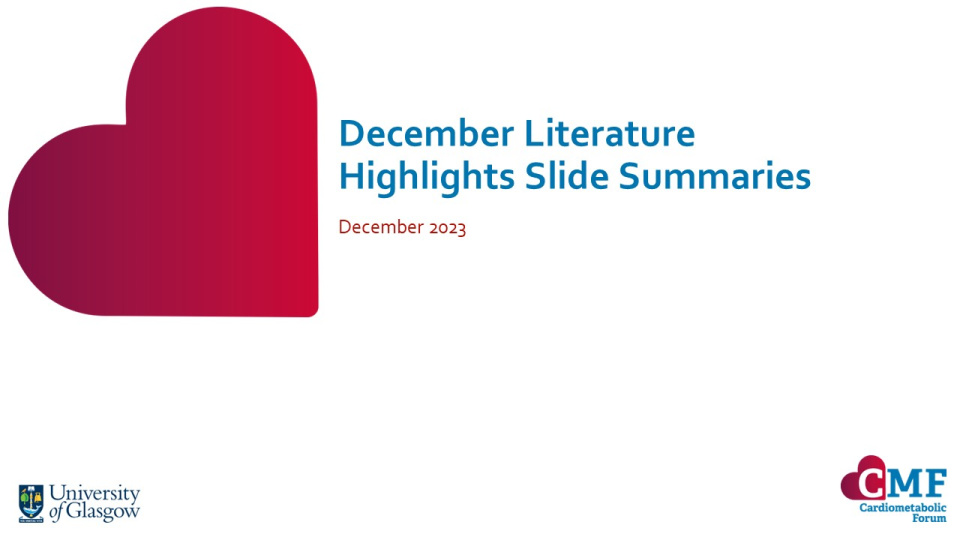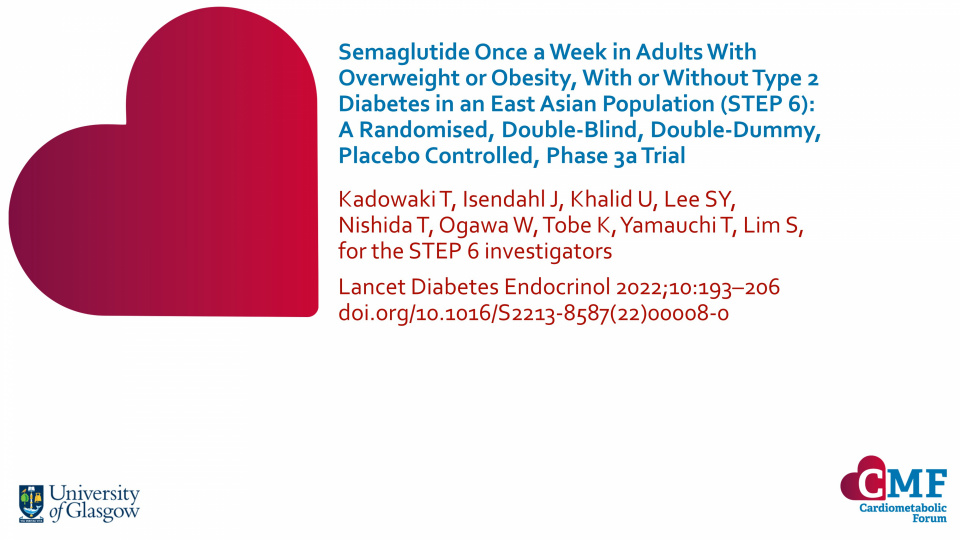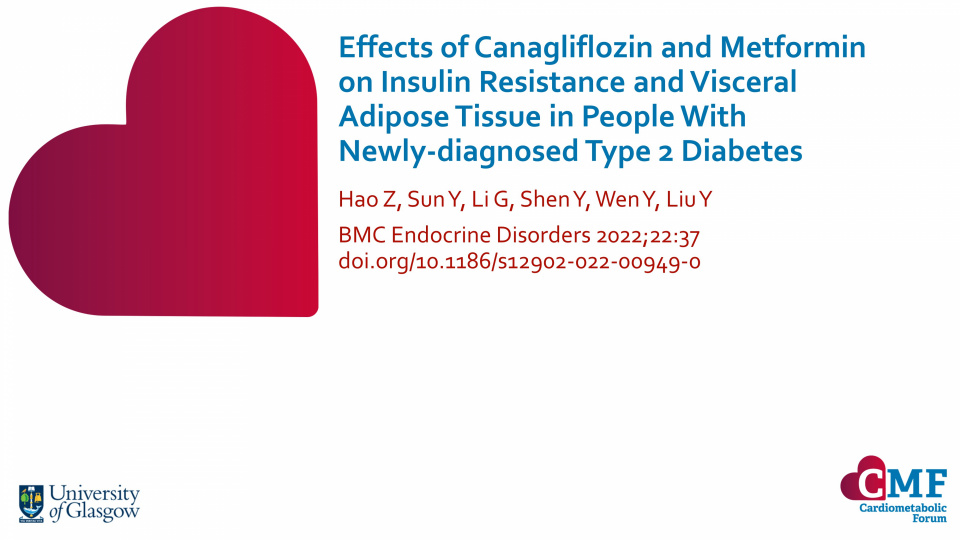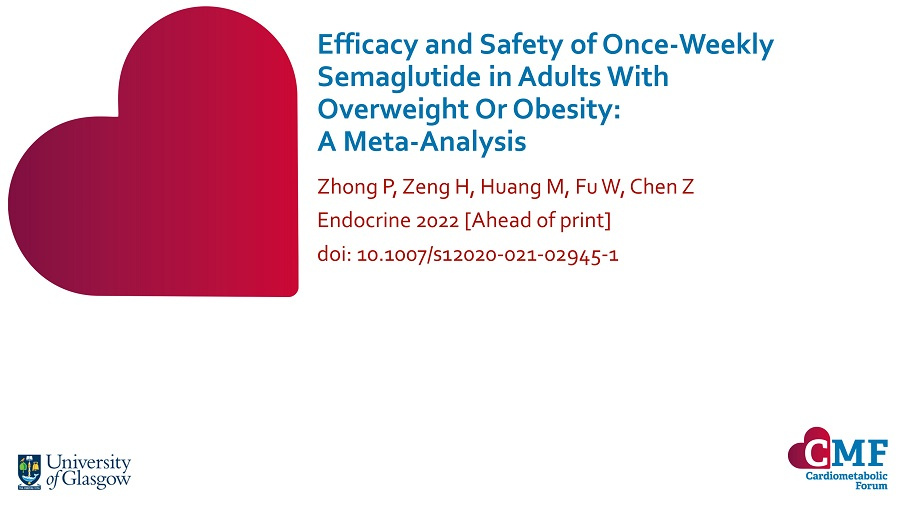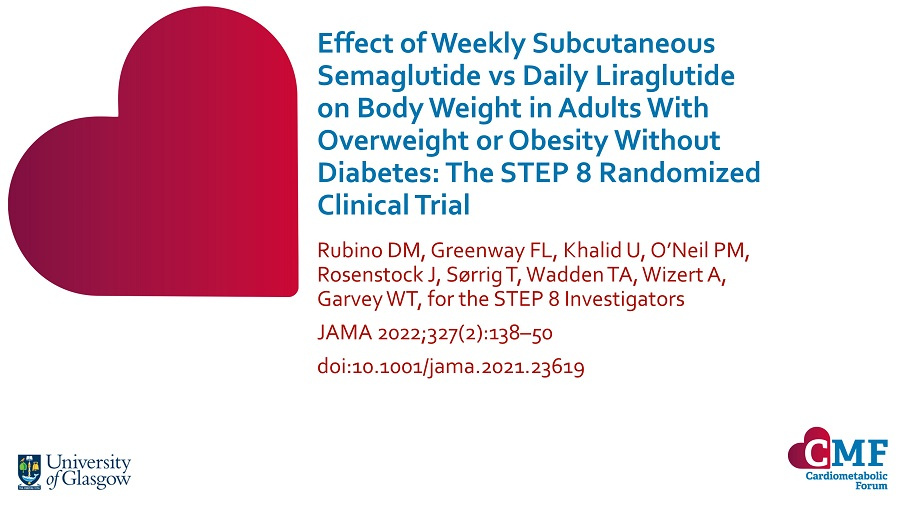Publications
Stay up to date with our literature reviews which are curated by experts to feature the most important publications released each month. Explore our publications for access to concise summary slides for your own use.
Semaglutide Once a Week in Adults With Overweight or Obesity, With or Without Type 2 Diabetes in an East Asian Population (STEP 6): A Randomised, Double-Blind, Double-Dummy, Placebo Controlled, Phase 3a Trial
Lancet Diabetes Endocrinol 2022;10:193–206. doi.org/10.1016/S2213-8587(22)00008-0
In this Phase 3a trial in an east Asian population, semaglutide 2.4 mg QW was shown to have superior and clinical meaningful reductions in bodyweight versus placebo, as well as greater reductions in abdominal visceral fat.
Effects of Canagliflozin and Metformin on Insulin Resistance and Visceral Adipose Tissue in People With Newly-diagnosed Type 2 Diabetes
BMC Endocrine Disorders 2022;22:37 doi.org/10.1186/s12902-022-00949-0
In this study of patients with newly-diagnosed (<6 months) T2D, canagliflozin was associated with reduced insulin resistance and visceral adipose tissue compared with placebo.
Efficacy and Safety of Once-Weekly Semaglutide in Adults With Overweight Or Obesity: A Meta-Analysis
Endocrine. 2022;75(3):718–24 doi: 10.1007/s12020-021-02945-1
Semaglutide QW was found to be superior to placebo in percentage change and absolute change in body weight. It also led to significant increases in proportions of patients achieving categorical weight reduction targets.
Effect of Weekly Subcutaneous Semaglutide vs Daily Liraglutide on Body Weight in Adults With Overweight or Obesity Without Diabetes: The STEP 8 Randomized Clinical Trial
JAMA 2022;327(2):138–50 doi:10.1001/jama.2021.23619
Among adults with overweight or obesity without diabetes, QW SC semaglutide compared with QD SC liraglutide – added to counselling for diet and physical activity – resulted in significantly greater weight loss at 68 weeks.

